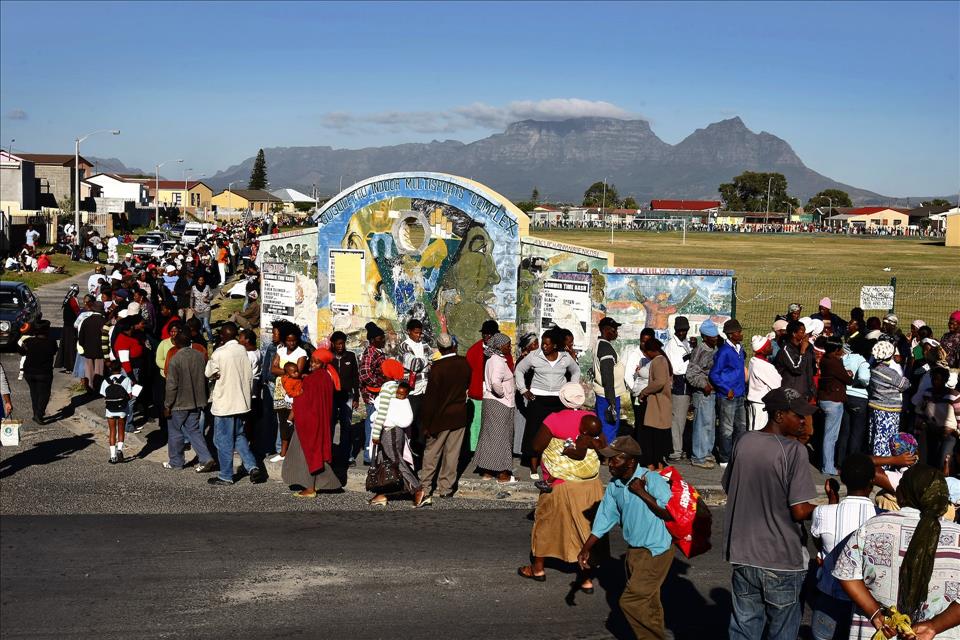(MENAFN- The Conversation) The South African government's failure to fix a corrupted R10 billion social grant payment contract has caused a crisis that threatens to disturb monthly payments to millions of vulnerable households. The Conversation Africa's business and economy editor Sibonelo Radebe asked Jannie Rossouw to explain what's at stake.
What would be the impact if social grants weren't paid?
It would have a severe impact on poor and vulnerable households. In the 2017/18 fiscal year there will be some 17 million grant beneficiaries, 11 million of them younger than 18.
But it's important to note that the number of dependants exceeds the number of social grant beneficiaries by a considerable margin. In most cases grants, which include pensions, disability payments and child support grants, support entire households. These households will be destitute if they do not receive grant payments in a timely fashion. They will not be able to buy food as households receiving grants typically don't have savings. To survive they have to spend whatever they receive.
This is why both the Minister of Social Development, Bathabile Dlamini, and her department have been highly irresponsible for leaving the distribution problem in limbo for so long. This even after they were instructed by the Constitutional Court to make alternative arrangements. It leaves the impression that the minister and her department want to force the country into a crisis, leaving no option but to get approval to continue using the current service provider.
Neither the minister nor the department have shown any urgency to bring this matter to a speedy resolution. It's also disconcerting that the minister seems to live in denial. She's failed to admit that there's a pending crisis of national proportions.
The minister should take political responsibility for this crisis. If she refuses to accept responsibility, it raises the question of whether the ministry she runs is needed at all or can be merged with another ministry, as its largest single responsibility is oversight of the legal administration and payment of social grants.
It is also disconcerting that others in leadership positions in the government have remained quiet. In any other country the head of state would have stepped in to try and defuse the looming crisis. But it seems that expecting any action from President Jacob Zuma in a crisis – except if he stands to gain personally – is too big an ask.
Why are social grants so important in South Africa?
They're very important because of extent of poverty, the consequent number of recipients, and the amount paid out. Total expenditure on grants in the 2017/18 financial year will amount to more than R150 billion .
Grant money is not only used to support beneficiaries. It's also used to provide broader support. Based on research I conducted more than one-third of South Africans depend – directly and indirectly – on grant payments. Any disruption of grant payments will therefore have a massively detrimental impact on a large number of poor households.
In addition, the economies of small towns and villages would be hit hard because they are heavily dependent on grant payments being used to buy goods and services in local shops. One knock on effect would be that shop owners' income streams would be affected and they wouldn't be able to pay employees' salaries.
What impact have social grants had on poverty alleviation in South Africa?
Grant payments redistribute income to poor households and have contributed to a reduction in poverty in South Africa.
The social grantis the government's biggest poverty alleviation and redistribution intervention. There are others, such as government housing provision and free water allocation. But payments in grants outstrip these by a large margin.
What are the weaknesses in the system?
The main weakness is the fact that the grant system was expanded during a period of rapid economic growth. In 2002 South Africa only had some 4,2 million beneficiaries of social grants.
This grew rapidly to about 17 million beneficiaries as the grants were expanded to include older children.
Because South Africa was going through a period of rapid economic growth at that time it could easily afford new spending initiatives and projects.
But since 2008 the country has suffered a period of low economic growth. And there isn't any expectation that the situation is likely to improve in the foreseeable future. As a result the system has become unaffordable.
An additional concern is that the Minister of Social Development has suggested there may be an extension of child support grants. This is simply unaffordable and will push South Africa closer to the fiscal cliff – the point at which its spending outstrips its revenues and it can't meet its debt obligations.



















Comments
No comment